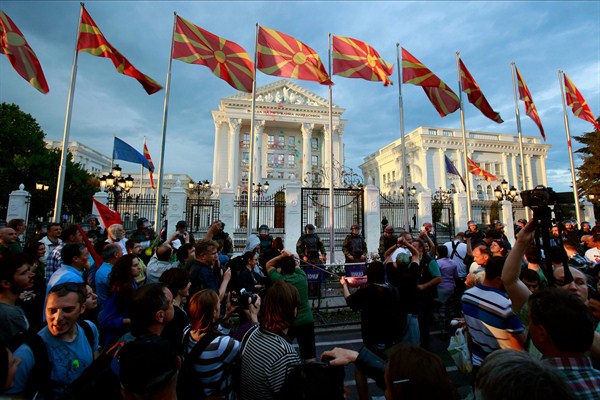BELGRADE, Serbia—Sixteen months after its rumbling political crisis erupted with allegations of government wire-tapping—which exposed abuses like corruption, voter fraud, the suppression of free media, and attempts to manipulate the judiciary—Macedonia remains in limbo. The country’s predicament has raised concerns that it could pull its neighbors into a new Balkan conflagration. It has also revealed the shortcomings of the European Union’s approach to the region at a time when Macedonia’s path toward EU membership is looking as precarious as ever.
In an interview with WPR, Macedonian Foreign Minister Nikola Poposki says that “a stable Balkans goes through a stable Macedonia. Historically, not a single destabilization of Macedonia has ever remained only a local one.”
“This is true regardless of the fact of who is protesting today, and what kind of support protesters get,” he adds, in reference to government claims that foreign provocateurs are behind the daily “colorful revolution” protests in Skopje—and indeed behind the initial wire-tapping scandal.

